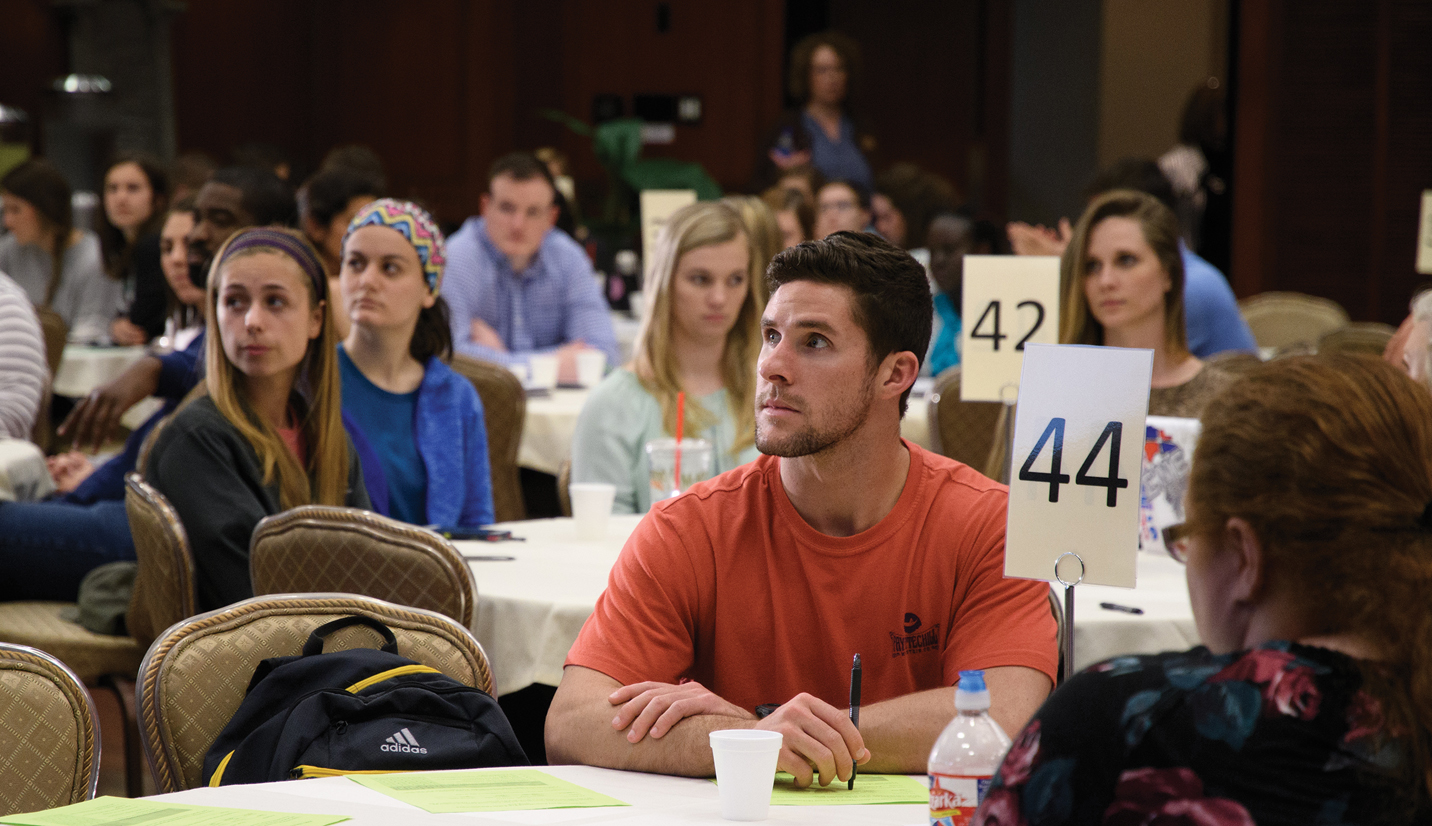By Mary Madill, M.S., PA-C

The interprofessional education steering committee began in 2014 after working together on the inaugural efforts of what is now called “A Night at the Round Tables.” Since then, our team has enjoyed the opportunity to collaborate on several more Round Table events and many other projects. As each health science program has grown and interprofessional collaboration has gained value, Night at the Round Tables has been a central focus for interprofessional activity and growth.
Oct. 15, 2018, graduate and undergraduate students across a variety of health-related professions joined together in a discussion on the impact of adverse childhood experiences on the overall health outcomes of an individual. They actively listened and generated ideas on the importance of knowing an individual’s story with this end in mind: to see the person, not a symptom or a disease. Plans to continue this event in spring 2019 are actively underway with hopes to offer two different options for attendance as we have outgrown our space — we regularly host over 450 attendees at the Round Table!
Through planning these events, the IPESC has developed a unique relationship with the professional counseling program. They have brought an increased level of intuitive guidance and facilitation to these events that has enhanced the learning experience for both students and faculty. We also have been able to create a mentoring relationship as new faculty join and lead the rigorous planning and implementation process for these Round Table events.
IPESC members have led the development of Lunch and Learns and CHS Movie Night. Lunch and Learn highlights health science faculty and students as leaders in their field by presenting a program during the lunch hour. Often, faculty are able to focus on topics in which they have advanced knowledge and practice experience. Recent presentations have included: medical Spanish, hearing loss and patient care, antibiotic resistance, and equine assisted therapy.
CHS Movie Nights have been well attended. The movies selected include content that personalizes a person’s journey with illness or loss and allows students to consider health concerns through a different lens. These events spark discussion to remind our students not only about the gravity of the professions in which they are entering, but also the reward of partnering with individuals and their families as they walk through very difficult times.
The IPESC has initiated an undergraduate course titled “Introduction to the Health Professions.” This course is designed for students who are actively searching for a “best fit major.” Development of this course grew from faculty observations that numerous students were changing from one health-related major to another. The IPESC hoped that informing freshman-level students about the variety of health-related majors available would help them find a place to plug in earlier in the professional journey. In the classroom, students engage in discussions about pertinent health care topics and are introduced to common health professions. An IPESC member coordinates the course, and health science faculty rotate through the classroom sessions so that students are exposed to each profession.
The IPESC continues to assess where we are, what the students need, and where we need to go next. Inspired by the College of Pharmacy’s development of an interprofessional certificate, we are developing a similar model for all health science students. We also hope to expand opportunities for interprofessional clinical experience in the future.
At the end of the day, we are encouraging and strengthening the resolve to continue inspiring pursuit of the Lord’s purpose in one another and in our students. The Lord has blessed us with a truly rich mission, and it is a gift to serve the kingdom in these roles.
— Mary Madill, M.S., PA-C